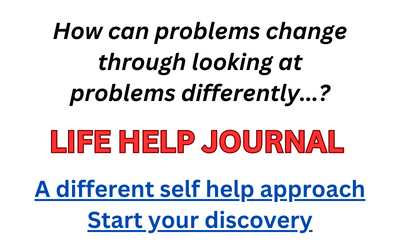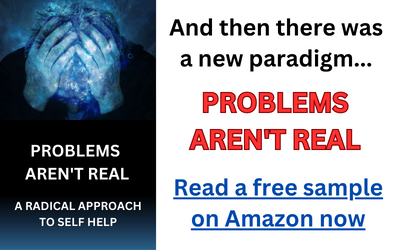Some readers might think a discussion of consciousness doesn’t have much of a place on a website about life improvement. I don’t agree (the fact that I’m writing this piece may have given this away). I consider consciousness to be very important, and even fundamental, to the issue of life improvement.
Let’s first consider the general meaning of consciousness. What is it? Consciousness is, essentially, a field of awareness. All that you should perceive comes into your field of awareness, your consciousness, and thus you are aware of it. There it is, whatever it should be.
Many people, and probably most people, give no consideration at all to consciousness. It doesn’t occur to them that something allows them to be cognizant of phenomena. For them there is the world at large, and that’s the end of it.
Is an outlook like this problematic?
Not necessarily, but it does overlook a very important insight: that there is a difference between the “stuff” that appears within consciousness, and consciousness itself. Why does this insight matter? Because if we don’t have an appreciation for the differences between consciousness and the phenomena that appears within consciousness, we tend to consider them as a single reality. This, in turn, leads to developing an attachment to phenomena: it’s all that there is, after all.
Looking at in this way, thought is not a phenomenon that comes into consciousness — it’s an expression of the reality of the world. Emotions are not phenomena within consciousness — they are indicators of what’s happening in the world (danger, despair, mistreatment, etc.) Many of us have no notions whatsoever of critically considering thoughts, emotions, and other sorts of phenomena, because we have accepted them as the only reality.
But they are not the only reality choices. There is phenomena, and there is the consciousness in which phenomena appears. Are both phenomena, and the consciousness phenomena appears in, reality? No.
Phenomena is always, to at least some extent, mental interpretation. Even apparently solid physical structures are subjected to mental interpretation. This thing is so and so. In this sense phenomena cannot be trusted absolutely, because we’ve added our individual mental interpretations to it. The consciousness of this same phenomena however, the awareness of it prior to interpretation and other mental noise, is solid.
This is true even in cases of so-called hallucinations, and various phenomena that cannot be verified by other people.
The phenomena we experience may not always actually occupy space within the world (as with hallucinations) but our consciousness is still working nonetheless. We are in fact aware of some thing, even if that thing is a physical mirage. Consciousness has not failed in cases of hallucinations — the body’s physical senses have failed.
Does consciousness ever actually fail? It depends on whom you ask.
Some perspectives insist that consciousness is only as reliable as the physical brain is. In other words, consciousness shuts off at the same time as the brain stops functioning. This is, more or less, the accepted opinion about how consciousness works.
The opposing opinion is that consciousness does not come from the brain, that it is not a function of the physical body at all and actually exists outside of physical body functions. This opinion often elicits controversy because it refutes the notion that all life is material and essentially says that life is, at its core, spiritual (i.e. there’s something bigger than all of us “out there”).
I subscribe to this second outlook — that consciousness is beyond the brain. Why do I believe this? The voluminous data around so-called near death experiences (NDEs), where people who were considered near death or actually dead recount their experiences upon being revived, is one reason. I also attribute my belief to my own experiences and intuition after taking on “spiritual” practices — and one practice in particular.
A significant life event for me was coming to understand, and accept, that mental activity like thought and emotion did not represent some absolute truth — and also did not define “me”. Through this insight I discovered thought and emotion were, essentially, transient energies that I could watch come and then go. Soon I began to identify not with the mental activity that I was watching, but with the watcher of this activity.
I came to appreciate that mental activity came and went, life circumstances changed and even disappeared altogether, but the watcher of all this phenomena — the consciousness within which it all appeared — remained in place. Not only was this presence constant but I couldn’t get behind of it and observe it in the way I could observe mental activity and the world at large. There was no space between this presence and me that would allow for observation.
There was no space between because I, and this consciousness presence, were the same thing.
Why does consciousness matter to life improvement? We cannot improve much at all when we’re ultimately trying to improve a false self. This is the proverbial house built upon a foundation of sand. To improve your life, first and foremost know yourself — consciousness — and stop identifying with what you really are not — the phenomena that appears within consciousness.
This is fundamental.

